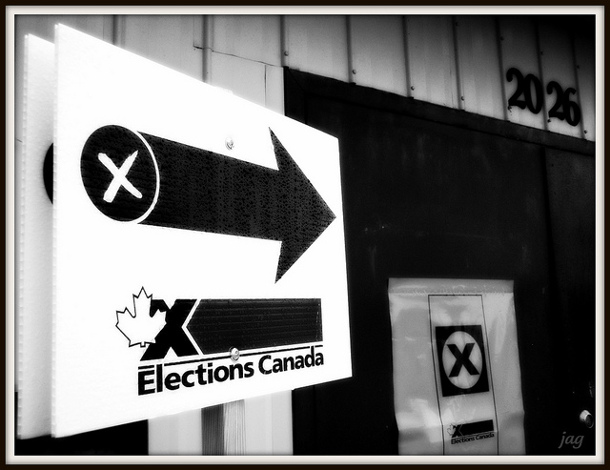A team of public advocates is seeking a court injunction to loosen identification requirements during the federal election expected later this year.
The Council of Canadians, the Canadian Federation of Students and three private citizens have previously asked the Ontario Superior Court of Justice to overturn parts of the Fair Elections Act -- which was passed in 2014 -- arguing it violates the Charter of Rights and Freedoms.
On Friday, the group sought an injunction from the same court, arguing that some Canadians could be denied their right to vote in this year's federal election. However, the group argues that Charter challenge won't be decided in time for the election.
As a result, it is seeking the injunction to suspend parts of the law that revolve around the use of voter identification requirements.
"If [aspects of the bill] remain in place for the next election, we know from the evidence, tens of thousands of electors will be denied their democratic franchise; their right to vote," said Dylan Penner of the Council of Canadians.
Penner said the injunction application focuses on the restrictions around identification because the new regulations don't allow voter information cards to be used for ID purposes.
Those cards are mailed to voters prior to an election. They provide information on where and when to cast ballots. Previously, a voter could bring the card to a polling station to use as ID, but the new law outlawed that practice.
Thousands use cards
If the injunction is successful, the cards would be accepted as identification once again.
According to an affidavit from former B.C. chief electoral officer Harry Neufeld, which was filed with the initial court challenge, an Elections Canada study found 400,000 of 900,000 people who voted in the 2011 federal election were reported to have used their voter information cards for identification.
For those without adequate proof, recent changes to how a person can vouch for another's identity are also a barrier to the ballot box, said Penner.
One of those changes stipulates that a person with proper identification can only vouch for one other person, making it hard to have enough vouchers in areas with a lot of students. Students move more than most people and are less likely to have updated identification, he said.
The initial Charter challenge also contains eyewitness accounts of voters being turned away.
In one affidavit, Halifax resident Mark Coffin detailed what he saw during the federal election seven years ago when the government first introduced identification rules that required a street address.
Coffin said at the time he was working with the Dalhousie University student union, encouraging students to vote, when he came across students who told him they weren't permitted to vote because they lacked proper ID.
"I approached the deputy returning officer at the polling station in the Dalhousie Student Union building and asked how many voters he was turning away due to improper or lack of identification," wrote Coffin in his affidavit. "He told me he had to refuse ballots to roughly two-thirds of students approaching the polling station because of insufficient ID."
Coffin said it is hard for students to prove their residency as many attend university away from home and have a limited understanding of how election requirements work.
The Office of the Minister of State (Democratic Reform) did not return a phone call by The Tyee's deadline Monday. ![]()
Read more: Election 2015, Elections















Tyee Commenting Guidelines
Comments that violate guidelines risk being deleted, and violations may result in a temporary or permanent user ban. Maintain the spirit of good conversation to stay in the discussion.
*Please note The Tyee is not a forum for spreading misinformation about COVID-19, denying its existence or minimizing its risk to public health.
Do:
Do not: